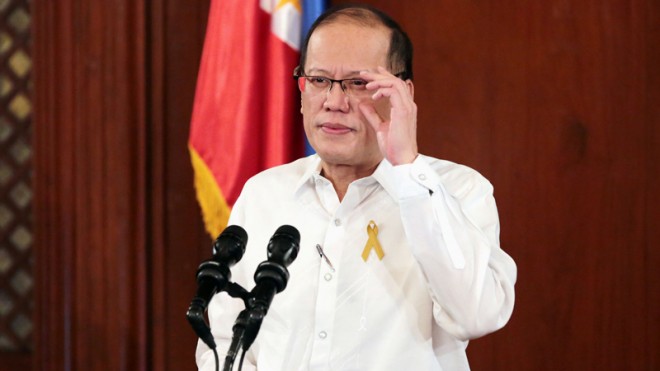A promise to lower the individual income taxes would be President Benigno Aquino III’s “best goodbye gift” to the people when he delivers his final state of the nation address (Sona) this July 27, Senator Sonny Angara said on Wednesday.
“Of the thousands of words in his Sona, one of the most awaited and the one which will be most applauded is the President saying that he will back bills that will lower individual income taxes,” Angara, chairman of the Senate committee on ways and means, said in a statement.
As chairman of the committee, the senator is leading the charge in the upper chamber to slash income taxes. He is also the author of a bill compressing the net taxable income brackets, and lowering tax rates especially for low- and middle-income earners.
Angara said Aquino’s mention of tax reforms in his Sona could mobilize support from the House of Representatives, which would end “the embargo in serious discussion for lower tax rates.”
The Senate already approved late last year a bill that would raise the tax cap for the 13th-month pay and other benefits from P30,000 to P82,000. Aquino signed it into law in February 2015.
READ: Senate OKs P82K tax cap for 13th-month pay | Higher tax exemption cap on bonuses now a law
“The Department of Finance has already expressed its openness to review and amend the tax rates and brackets, and we welcome this progress. We should let the executive guys run the numbers and tell us hanggang saan tingin nila pwede ibaba ang rates (up to how much they think the rates can be lowered),” Angara said.
In making one final push for lower income taxes, Angara again calmed concerns by revenue officers that altering tax rates will punch a big hole in the coffers.
“Any revenue loss is recoverable. If withholding tax is converted into disposable income, then it can be recouped through the VAT on goods. If part of the salary intended to be remitted to the BIR (Bureau of Internal Revenue) will now be spent for goods, then it can still be recaptured through the tax on the goods bought,” the senator explained.
“It will also be good for the economy. It is always better to plow money back in circulation, where it can stimulate the production and consumption of goods. Sometimes, instead of government doing the spending for the people, let the people do the spending themselves,” he added.
Angara said the bill, once enacted into law, would retain more money in paychecks of ordinary salaried workers and would lead to greater voluntary compliance.
“It will also attract human capital and prevent the migration of our own to countries (which) do not reward industry and productivity with high tax rates,” he further said.
Angara pointed out that the Philippines has the second highest individual income tax rate in the region at 32 percent next to Thailand and Vietnam’s 35 percent, and the highest value added tax (VAT) at 12 percent.
He also noted that the country’s current individual income tax bracket has remained unchanged since 1997 until today even when the consumer price index has already almost doubled.
“We need to think ahead and be competitive in the region but more importantly, we must give the Filipino people a break,” said the senator.
“Currently, a policeman and a teacher whose net taxable income is P150,000 are taxed at the third highest rate. Kung hahayaan lang natin ito at hindi tayo agad kikilos upang amyendahan ang sistema ng ating pagbubuwis, malamang ay sa mga susunod na taon, ang tax rate ng ating mga guro, nars at kapulisan ay sintaas na ng tax rate ng mga milyonaryo at bilyonaryo sa bansa,” the senator said.
(Currently, a policeman and a teacher whose net taxable income is P150,000 are taxed at the third highest rate. If we will allow this and we will not act immediately to amend our taxation system, maybe next year the tax rate of our teachers, nurses and policemen would be as high as the tax rate of the millionaires and billionaires in the country.)
This injustice, Angara said, is called “bracket creep” where taxpayers who are not considered high earning are already pushed into high brackets. At some point, economists say, this bracket creep would lead to “fiscal drag” where people will not have any purchasing power left to contribute to the economy due to excessive taxation. IDL
